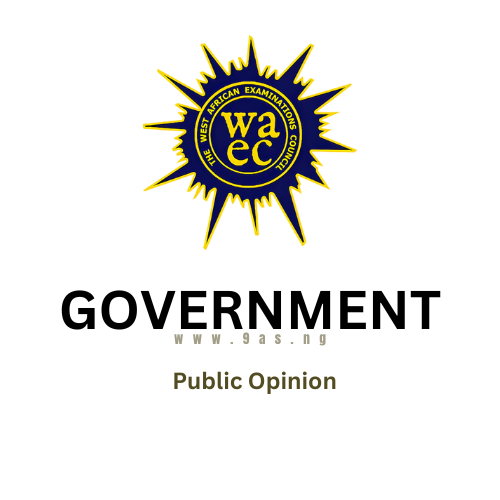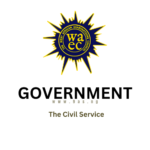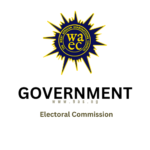THEORY
1. Define public opinion.
2. What are its characteristics?
3. Define Public Opinion.
4. Explain three factors that can promote public opinion in a state.
5. Define opinion poll.
6. State five factors that make the conduct of public opinion unreliable in West Africa
7. Define public opinion.
8. Highlight three ways by which public opinion can be formed.
9. In what three ways can public opinion be encouraged in your country?
10. Identify any five roles performed by the Mass Media in nation building.
11. Define Opinion poll.
12. State any four factors that make the conduct of opinion poll unreliable in West Africa.
13. Highlight five roles played by the mass media in strengthening modern democracy.
14. Outline five ways in which Public Opinion is measured.
15. Identify five factors that make public opinion an important aspect of the democratic process.
16. Explain five reasons for the decline in the public trust of the media in your country
OBJECTIVES
1. Which of the following hinders the expression of public opinion?
A. Absence of universities.
B. Uninformed citizenry.
C. Labour unions.
D. Presence of pressure groups.
2. Public opinion can best be defined as
A. one man’s view on public issues.
B. sentiments expressed on public policies.
C. the sum total of popular views on public policies.
D. the view of the rich expressed on public affairs.
3. Which of the following can aid in the formation of public opinion?
A. Order-in-council.
B. Free Press.
C. Existence of one party system.
D. Existence of press censorship.
4. Public opinion is the view held by the
A. minority.
B. civil servants.
C. majority.
D. politicians.
5. Which of the following factors limits the expression of public opinion?
A. The type of government in a state.
B. The establishment of private media organizations.
C. The high literacy rate of the citizens.
D. Religious belief of the citizenry.
6. Public opinion enables a government to
A. influence the public.
B. suppress its opponents.
C. cut down the cost of governing.
D. know the feeling of the masses.
7. Public opinion is very important because it
A. guarantees a free press.
B. protects minorities.
C. tells the government what action it must take.
D. lets the government know what the people want.
8. A effective way of strengthening societal institutions is through the expression of
A. personal opinion.
B. group opinion.
C. elite opinion.
D. public opinion.
9. Which of the following best describes public opinion?
A. Opinion of the elites.
B. Opinion of the ruling party.
C. Political views of important groups.
D. Important political views of large segment of the population.
10. Public opinion enables a government to
A. control the public.
B. find out what the public thinks about its activities.
C. influence the public.
D. suppress its opponents.
11. Public opinion is crystallized through all the following except
A. opinion polls.
B. strikes.
C. referenda.
D. military coups.
12. Public opinion is defined as the
A. aggregate views of the people.
B. sentiments of opposition parties.
C. consensus of the mass media.
D. reaction of pressure group.
13. Traditional practices which can be sanctioned by public opinion when they are broken are called
A. decree.
B. local law.
C. customs.
D. edict.
14. Public opinion on the performance of a government is best measured by
A. military strength.
B. general debates elections.
C. the mass media.
D. parliamentary
15. The method in which a group of people are interviewed on a specific political issue is called
A. referendum.
B. individual speech.
C. individual writing.
D. opinion sampling.
16. The earliest agent in the formation of public opinion is the
A. family.
B. hospital.
C. political party.
D. university.
17. Public opinion can be expressed through
A. census.
B. general strike.
C. socialisation.
D. compromise.
18. Public opinion is defined as the
A. opinion of political leaders and public officials.
B. expressed views the of the active and conscious citizens.
C. published views of the ruling party.
D. opinion of the entire citizenry.
19. Which of the following systems of government is more responsible to public opinion?
A. Oligarchy.
B. Republicanism.
C. Plutocracy.
D. Monarchy.
20. Measuring public opinion becomes highly expensive when
A. a referendum is held.
B. public opinion poll is conducted.
C. public debates are held.
D. mass media reports are evaluated.
21. Public opinion enables the government to
A. find out what the people think about its activities.
B. organize political conferences and solidarity rallies.
C. punish political opponents.
D. employ more workers
22. Which of the following agents of public opinion is the most widespread?
A. Mass media.
B. The schools.
C. The interest groups.
D. Political parties.
23. Which of the following agencies helps the most in shaping public opinion
A. Pressure groups.
B. Mass media.
C. Colleges and universities.
D. Peer groups.
24. Public opinion can be measured through all of the following except the
A. imposition of laws made without any debates.
B. conduct of opinion polls.
C. general views expressed in the mass media.
D. holding of referendum in a state.
25. The media play a vital role in the political environment in that, it
A. Articulate the views of individuals.
B. Invites people to be lawless.
C. Projects individuals above the state.
D. Articulate the views of the ruling power.
26. The electronic and print media make their views heard on national issues through
A. public notice.
B. advertisement.
C. documentary.
D. editorial commentary.
27. The collective views held by majority of citizens of a country about a particular policy is
A. national interest.
B. public opinion.
C. commentary.
D. bulletin
28. Public opinion is important in that, it
A. helps political parties to assess their policies.
B. creates delays in the execution of policies.
C. may be unreliable and misleading.
D. can be manipulated by political opponents.
29, What does the mass media rely on to gauge public opinion?
A. Influential citizens
B. Propaganda and interviews
C. Polls and surveys
D. Rumors and gossips.
30. Which of the following options is the role of a newspaper in a state?
A. Determines government appointments.
B. Disseminates information.
C. Ensures fairness in newspaper circulation
D. Ensures fair distribution of relief items.
31. The media can best contribute to the democratic process of a country by
A. lobbying ministers to be in their good books.
B. setting the agenda for good governance.
C. inciting strikes and demonstrations.
D. recounting the achievements of the government in power.
32. In an environment of press freedom, the media plays the role of
A. articulating views of individuals.
B. inciting people to be lawless.
C. projecting individuals above the state.
D. highlighting only the activities of government.
33. Representative government around the world pay attention to public opinion because of the following factors except
A. protection of the government from media scrutiny
B. indication of government in good standing with the people
C. provision of feedback on implementation of government policies
D. national security concerns.
34. Press control is necessary for a state particularly in the area of
A. the economy
B. auditor general’s report
C. state security and secrets
D. foreign trade
35. The media helps to enrich discourse on national issues through its
A. marketing
B. editorial comments
C. sales and advertisement
D. correspondents.
36. Information dissemination and communication in a dug political environment had been made faster and in a easier with the advent of
A. educational practitioners
B. press censorship
C. government spokesmen
D. social media
37. Public opinion is formed through the following channels except
A. mass media
B. elections
C. cabinet
D. political parties
38. The media commonly referred to as the fourth estate of the realm, monitors the activities of government on behalf of the
A. media organization
B. executive
C. civil society
D. people



